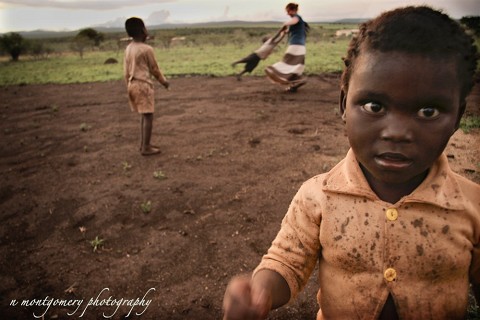Best Practices in Orphan Care


Our Adventures team cares for over 6,000 orphans daily. For a while now, I’ve wanted to help them do a better job. What if we equipped caregivers to upgrade the quality of care they give?
I had this idea:
If we could train caregivers (maybe racers too?) to conduct an audit or review of the best practices of the orphanages in which they serve, then they could take that information and help those orphanages improve.
I looked high and low, but I couldn’t find such an audit. So I drafted the one below. Please let me know what you think of it.
—————————————————————————————————-
Evaluate each of the following on a scale of 1-5 where 1=Unacceptable and 5=Excellent
Nutrition
______Nutritional quality of food
______Adequate supply of food
______Food tastes good
______Three meals a day
______Clean water
Notes:
Discipline
______Clear rules
______Children understand rules
______Staff trained in basics of discipline
______Standards established
______Balance with love
______No abuse
Notes:
Nurture
______Hugs
______Friendships
______Play-time
______Face-to-face conversation
______Mom and dad figures exist/attachment is critical
______Adequate adult presence
______Children say, “I feel special. I’m loved.”
Notes:
Community
______ Children say, “I belong. My siblings love me.”
______Pervasive sense of close family
______Relationships outside orphanage
______Children play well & play often
______Conversations cultivated
______Community cultivated
______Local church relationship
Notes:
Health Care
______Access to clinics/Limited sickness
______Access to clean toilets
______Access to baths/showers
______Sanitary facilities
______Adequate immunizations
Notes:
Education
______Quality
______Availability
______Cost
______Available for all ages
______Children educated to grade-level
Notes:
Daily personal care
______Potty training
______Daily cleaning – showers& teeth brushed
______Weekly cleaning – lice check & bedbugs
______Hair combed & regular hair cuts
______Learning self-care
______Daily physical fitness
Notes:
Clothing
______Quality
______Adequacy
______Quantity
______School clothes
Notes:
Discipleship
______Prayer
______Bible study
______One-to-one
______Regular worship
______Ministry
______Missions opportunities
Notes:
Environment
______Atmosphere in orphanage
______Claustrophobia factor
______Positivity of staff
______Play areas
______Safety
______Children able to leave premises daily
______Access to nature
Notes:
Funding
______Adequacy
______Regularity
______Cash flow
______Multiple sources
______Transparency
______Accountability
Notes:
Admin
______Staffing
______Accounting books
______Systems
______Structure
______Training
Notes:
Staff
______Maturity of staff
______Screening
______Training
______Ratio of kids/staff
______Staff receive adequate pay
Notes:
Leadership
______Leaders have raised children successfully
______Leaders have a plan
______Accountability
______Experience
______Desire to grow
Notes:
Counseling
______All children receive counseling
______Quality
______Regularity
______Staff receive counseling
______Follow-up for all
Notes:
Aftercare
______All children have a transition plan
______Percentage of children who transition to sustainabililty
______Children are discipled after leaving
______Adequate resources available
______Record-keeping shows progress of each graduate
_____All children have birth certificates on file
Notes:



Seth I think this could be great.
could add a physical activity or something along those lines? Depending on the orphanage…
I think you have hit on this with some of the questions, but I think it would be important to get a closer closer look at whether the children have adequate opportunities to attach to one or two adults who will remain in their lives at an orphanage or until a permanent family option exists for the child. From our research and learning in the adoption process, this factor alone allows children to have greater relational success in the long run than many others.
Good call, Hugh. Added it.
Amen, Becky. That is critical!
This is incredible!! Such a helpful assessment for someone like myself who hopes to have children’s homes one day.
Rachel, glad you liked it. I’m optimistic that it will be useful. I intend to train racers to use it and help the orphanages they visit.
I really like this idea! I am going to show this to my dad as we are in the process of developing a ranch for foster children in Colorado and I think this can apply. Becky, I really liked your comment too!
One thing I thought might be good is to add to either the daily personal care section or the medical section is rating if there is a regular routine for managing and eliminating lice and bed bugs. This was something we faced in almost every orphanage sometimes because of lack of consistent attention or because of the lack of effective tools. When the kids have to constantly live with lice we are teaching them that this is the normal to be infested instead of teaching them healthy habits.
Good idea, Rachel. I was looking for this kind of feedback. I will incorporate it into the document. Thanks!
It would be wonderful to see a summary result of the orphanages that are audited with their names left out of course to help us all learn what are the best practices to learn from and what the trends are that we are going away from.
You just keep coming up w/ great ideas! We’ll need help to activate them. Let me know if you want to help us with this project in the future…
Ya sure I would be happy to help if I can.
This is a bit late, but here is an excellent checklist.
http://unitingforchildren.org/2013/05/checklist-for-evaluating-orphanages/
Thanks, Andy.
Have a look at http://UnitingforChildren.org if interested. We’re working on collecting stories and encouraging developments around the world all in the area of best practices. Mostly focused on moving away from orphanages, though you’ll find a great article by Kelsey Nielsen about how she is working with some orphanages that are willing to reunite children and families.
Honestly, the thing missing from the list above that sticks out strongly to me is any type of family reunification or prevention program. I’d like to see every orphanage working hard to prevent children from having to enter, and when they do, trying their best to get them back in families before it’s too late. That takes a social worker, probably, and a real, practical commitment not to put the institutions interests over the child’s (which is easier said than done).
Good stuff – appreciate the input, Andy.
You may want to look into Whole Child International (http://www.wholechild.org/en/). They have worked with several governments and universities to develop a free app for assessing quality of care in residential care centers/”orphanages”/children’s homes. Beyond simply evaluating the care, they also offer free suggestions for improvements. Its a wonderful tool for those doing group care.
Thanks, Nicole. Wonderful resource. I like the work you’re doing at CAFO as well.
It sounds great,and fortunately it is likely the same idea I am running after. I am an orphan and dream to give these little angels future.
thank you so much
I am glad to read through this article. it’s very useful both for research and self assessment of Orphanages by themselves.